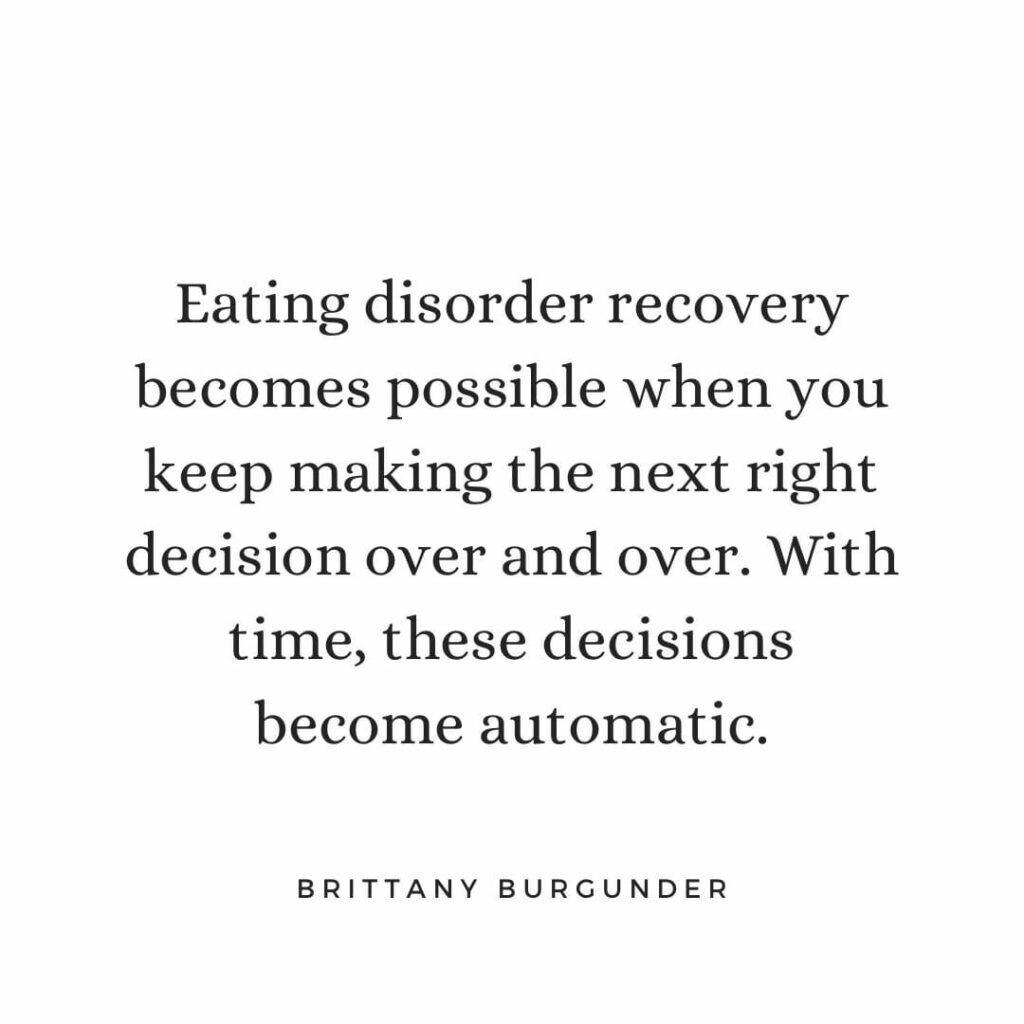
HOW RECOVERY HAPPENS
⋅
✅You didn’t develop an eating disorder overnight, and you surely won’t recover from one instantaneously either. This sounds cliché, but if I’m honest with you, I struggled to take this to heart. I was angry that my eating disorder wouldn’t just “go away.” I didn’t want to put the work into recovery, and frankly, I didn’t think it was fair. An eating disorder was never my choice, so why should I have to make decisions that facilitate my recovery?
⋅
Underneath my frustration was fear. I was afraid that recovery was not something I would be capable of achieving. I had lived with my eating disorder for so long that my thoughts and behaviors had become automatic. What was helpful for me was to simplify the process into smaller goals. My favorite acronym I learned early on in my recovery was “CCC.” This stands for —Catch it —Challenge it —Change it. It is especially helpful when thinking about making progress in recovery.
⋅
For example, recovery required me to partake in a 3-step process:
1.) Be conscious of ED thoughts and behaviors (Catch it)
2.) Ignore and question these ED thoughts and behaviors (Challenge it)
3.) Make a decision that supports my recovery (Change it)
⋅
Remember that you can’t go from A-Z, but you can go from A-B and B-C. Don’t think about how far you still need to go. Your job is to think, “what’s the next best move and choice I can make?” Simplify it. You can control your decision about what to do next. This is what will lead you to the best outcome.
⋅
Recovery is a constant choice, and one that will feel awkward and time consuming initially. You have to develop a new relationship with food and with yourself. The process of unlearning habits and replacing them with new ones takes time. But over time —these repeated decisions are what makes recovery possible. ~Britt💜